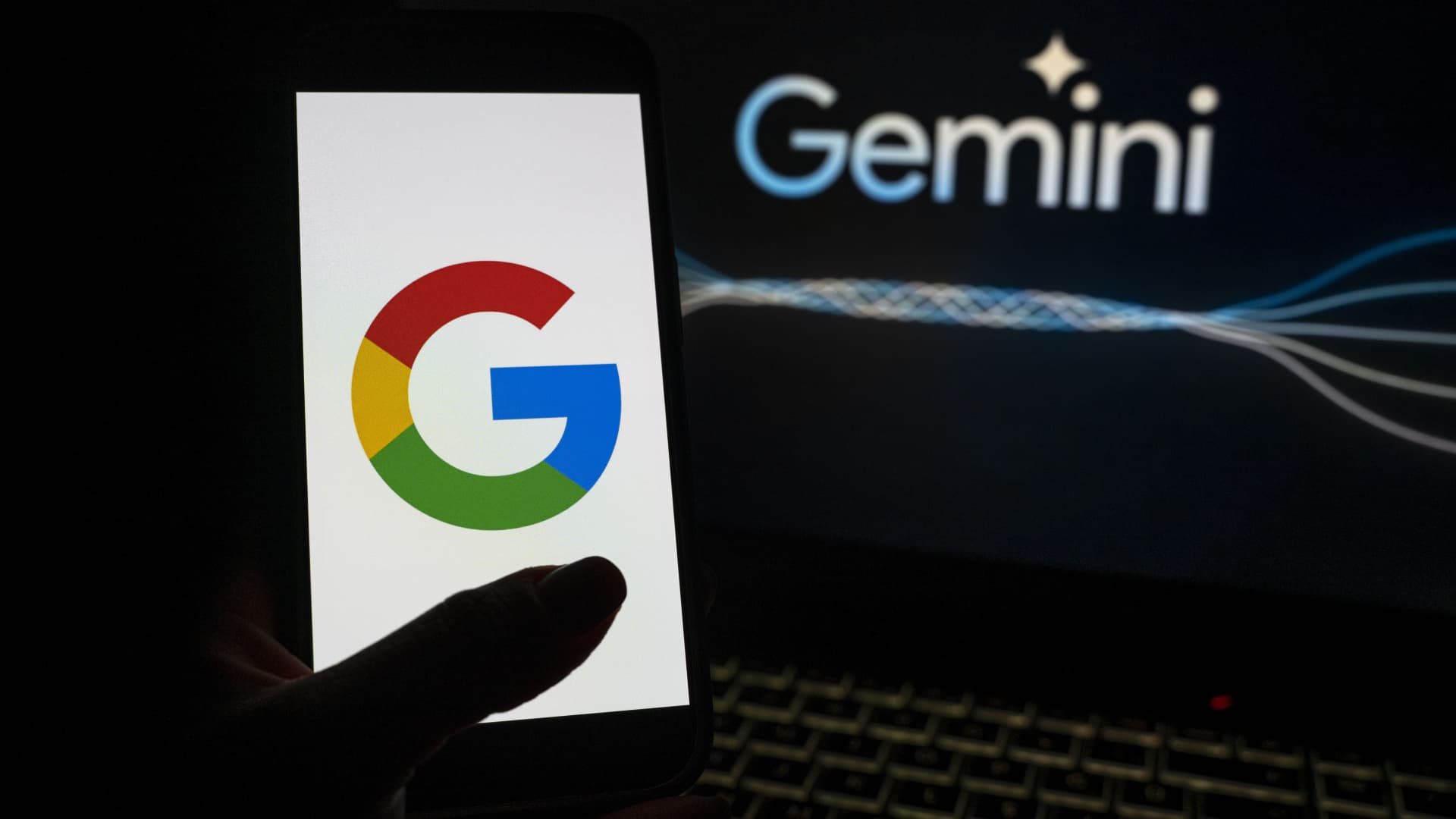Google pauses Gemini AI image generator after ‘inaccuracies’

Betul Abali | Anadolu | Getty Images
Google on Thursday announced it is pausing its Gemini artificial intelligence image generation feature after saying it offers “inaccuracies” in historical pictures.
Users on social media had been complaining that the AI tool generates images of historical figures — like the U.S. Founding Fathers — as people of color, calling this inaccurate.
Google said in a post on X on Wednesday that the AI feature can “generate a wide range of people. And that’s generally a good thing because people around the world use it.” But it said that the software feature is “missing the mark here,” adding that the tech giant is “working to improve these kind of depictions immediately.”
Google posted an updated statement on Thursday, saying that it will pause Gemini’s feature to generate images of people and will re-release an “improved” version soon.
The image generator tool was launched at the start of February through Gemini, which was formerly called Bard. It is facing challenges at a time when Google is trying to catch up with Microsoft-backed OpenAI.
Gemini refused to generate any images at all on Thursday morning when tested by a CNBC reporter.
While Google is facing problems with Gemini’s image creation, Open AI last week launched Sora, its new generative AI model that is able to produce video from users’ text prompts.
Jack Krawczyk, a senior director of product for Gemini at Google, said on Wednesday that the company’s image generation capabilities reflect the tech giant’s “global user base,” and that it takes “representation and bias seriously.”
“We will continue to do this for open ended prompts (images of a person walking a dog are universal!),” Krawczyk said in a post on X.
“Historical contexts have more nuance to them and we will further tune to accommodate that.”
Google launched Gemini, its most advanced AI model, at the end of 2023. This month, it also rebranded Bard, its ChatGPT competitor, to Gemini. Google further launched a subscription service to a more powerful version of the AI model.




